SEO Pagination – 10 Tricks to Best Your SEO
Content distribution across a website can be a headache. But, with the pagination, you can certainly divide the content into parts and make it more digestible for the audiences. The question here, is whether pagination offers good SEO or not? SEO Pagination is more than just content distribution and with Google updating its policy for pagination by asking website creators to leave the practice of using pagination with rel=“next” and rel=“prev” indexing signal.

Pagination is quite common for e-commerce websites and websites that host blog posts as there is too much content to be published. Google has been somewhat strict on pagination.
10 SEO Pagination Recommendations
So, let us understand, why is Pagination a necessity for SEO? “We don’t treat pagination differently. We treat them as normal pages.”- John Mueller, Senior Webmaster Trend Analysts, Google LLC. Let`s overview 10 major recommendations for paginated websites.
1. Duplicate Content
If you are an SEO consultant, you probably know what duplicate content is. The same content over several URLs means your SEO is doomed! Yes, more than anything duplicate content always hurts your SEO.
So, What does duplicate content have to do with SEO pagination?
If you ask an expert about pagination SEO best practices, they would always ask to avoid duplicate content. Pagination actually can create the issue of duplicate content by small errors during the process of pagination.
The mistake that is most common in the pagination process is to use a paginated series of pages as well as the “View All” section for your website. It creates the problem of duplicate content without proper canonicalization of links.
2. Content Distribution
Often websites rely on multiple pages with more ads and lower content to promote products and generate revenue. But, keeping the main content low and emphasizing on the Ads, which is considered a hindrance in SEO, can lower your chances of ranking high.
Content should be far more engaging and of high-end quality to commemorate the effect of advertisements. So, there are two things you can do:
- Reduce advertisements from pages and keep your content percentage higher.
- Create an excellent and engaging content that can help readers clung on your pages, despite the annoying banner Ads.
But, if you don’t want to reduce ads and want your content to be well distributed for search engine crawlers to index, you can choose to paginate your content, where you can keep the ratio of main content, in the right proportion along with the ads on your pages. Paginated series keeps the focus on your main content and allows enough room for ads.
3. Ranking Signals
As of now, there are 1,750,601,033 websites on the internet. Getting high positions among such a huge volume of websites takes excellent SEO pagination URL structure and strategized content to counter the competitors. Ranking signals are the signboards for your Google indexing journey!
Ranking signals like dwell time, site architecture and others are the very things that search engines tap into to rank websites. Using a single page approach is considered by several SEOs as one of the most prolific pagination SEO best practices. Pagination can be used only in the case where you think your content will look clumsy on a single page.
4. Crawling Budget
Pagination uses too much crawl budget as it uses a complex SEO pagination URL structure that causes too many URLs for the crawlers to crawl upon, creating the web of URLs where often the important content to be indexed is hard for crawlers to find.
For Pagination SEO best practices, assign no-follow and do-follow links to the URLs you want to be crawled. You can also use Robot.txt for the same. It can help your SEO pagination process with the conservation of crawl budget.
5. Anchor Texts
Ahref attributes and anchor links are the two most popular pagination SEO best practices. With properly defined ahref attributes and anchor links, crawling for the Google bots becomes easier.
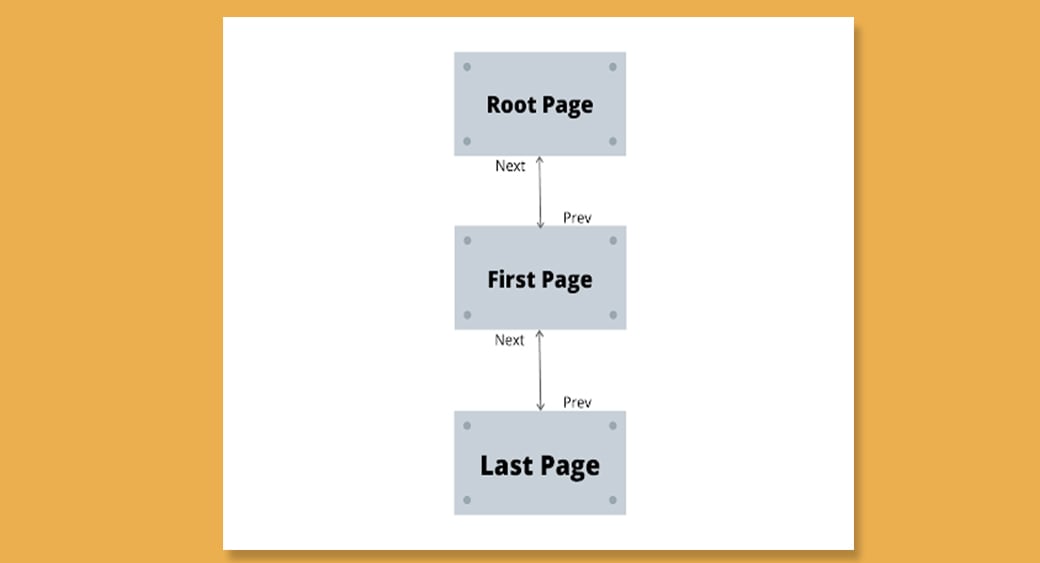
Let us discuss, how can you effectively use anchor texts and ahref attributes?
- Search engines can crawl the paginated URLs, easily when the SEO pagination URL structure is designed as such that URLs have anchor text and ahref attributes.
- For interlinking different pages during the pagination, make sure that you use <a href= “Your-Paginated-URL-here”> for internal linking to paginated pages.
- Don’t use Javascript for all your attributes added to the paginated pages.
- Though Google was adamant on non-use of next/prev attributes, you can use “rel=next” and “rel=prev” attributes for your SEO pagination activities to establish relationships between component URLs and Paginated series.
- For better SEO, you should use the self-referencing canonical link with “rel=next/prev” attributes.
- Always use your link attributes in the header section and avoid the usage in the <body> content.
- Add a “prev” link to the root page and “next” to the last page as attributes.
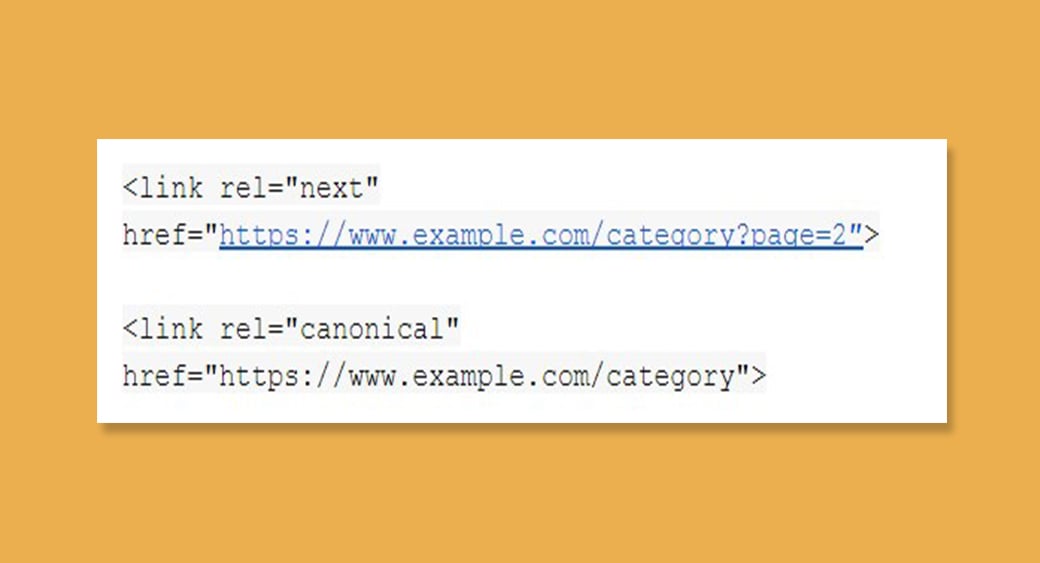
6. On-Page Elements
We have already discussed above how Google is not treating your pagination pages as special ones. So, you need to modify some on-page elements to indicate crawling and indexing of the pages.
To provoke Google to return to your root pages and crawl your canonical links for optimization of crawling for all the paginated pages, the pagination SEO best practices that you can use are as follows.
- Avoid duplicate meta descriptions and title tags as two pages competing for the same search results can confuse the Google crawlers and affect your rankings.
- Use different meta descriptions and try to modify your title tags for your pages other than the root page in pagination.
- Yet after altering the code and meta, your paginated pages are beating your root pages at SERP(Search Engine Result Pages), then, it’s time for some old-fashion SEO strategies.
- You can de-optimize your on-page elements of paginated pages like H1 tags. You can optimize your root page through on-page text and categorized images.
- Exempt all your paginated pages from the XML sitemaps to restrict crawlers from finding them.
- Use search console parameter URLs for your paginated pages rather than static URLs.
Send 404 HTTP codes to the search console in response to the request for paginated pages that are not currently part of the series.
7. View All Page
If you can understand, why view all pages have been favorites for search engines? You will know the usage and implementation of view all pages in your pagination strategy.
“View All” pages actually club all the pages and categorize them on a single page and as you probably know by now that Google bots love a single page approach. Plus there is this advantage of users wanting to have everything on a single page for easy access.
So, a view all page will help you signal ranking to the crawlers and even drive great traffic towards your website. But, then there have been arguments from many SEO experts on the confusing state of search engine crawlers when there is the usage of “rel=next/prev” with “View All” pages.
The solution to this problem is simple if you can load all your content into a single URL then you should avoid pagination or View All page at all. But, if the content is too large, use SEO Pagination best practices to optimize “rel=next/prev” as an attribute.
8. Indexing Links
As we have already seen in the above discussion, how paginated pages can compete with your root page or a page of actual importance to confuse the crawlers, during the indexing.
With a no-index follow link provided to the paginated pages, you can redirect crawlers to the root page and restrict the indexing of paginated pages into SERP. It will help your website rank better at the search engine rankings.
9. PushState and SEO Pagination
Some websites use infinite scrolling to fix pagination issues and enhance the user experience of their portals, while that works perfectly for online users, but, for Google crawlers, it does not make any difference.
Apart from infinite scrolls, there are “View more” used by many websites for accommodating the content at a single page rather than paginating the content into different pages. Though it is a great option just like the infinite scroll, search engines don’t recommend its use.
In fact, for Google bots, infinite scrolling is like “Krypton” to “Superman” and they don’t encourage infinite scrolling for indexing or higher SERP rankings. So, to fix the issue of infinite scrolling, you can employ the following steps.
- Decide the content you want to place into an infinite scroll and break it up into chunks.
- As you are about to paginate your infinite scroll, define your SEO pagination URL structure accordingly.
- Use patterns like “example.com/fun-items?lastid=567” or “example.com/fun-items#1” for identifying you paginated pages in the infinite scrolling.
- Never use a relative time-based URL structure as it reduces SEO due to complexity.
- Add “rel=next/prev” in the head tag fro each page for encouraging indexing signals to search engines.
- Use “PushState” for your infinite scrolling pagination. It is an HTML5 method that draws from anything serialized and the URL to load new content according to the sequence defined through the pagination of the pages.
10. Discourage Paginated Crawling
The best way to stop your paginated pages to be crawled by Google bots is to discourage it through a well-defined SEO pagination URL structure and use of on-page optimizations.
To discourage Google bots on crawling your paginated pages, you can optimize your XML sitemaps. You can either use “no follow” links to your paginated pages or use disallow links. This way, you will restrict the crawling of paginated pages and save your crawl budget for more important pages.
Tracking Your Pagination
Now that you know how you can optimize your SEO pagination for higher rankings, let us discover how you can track the performance of your paginated pages on different parameters for SEO?
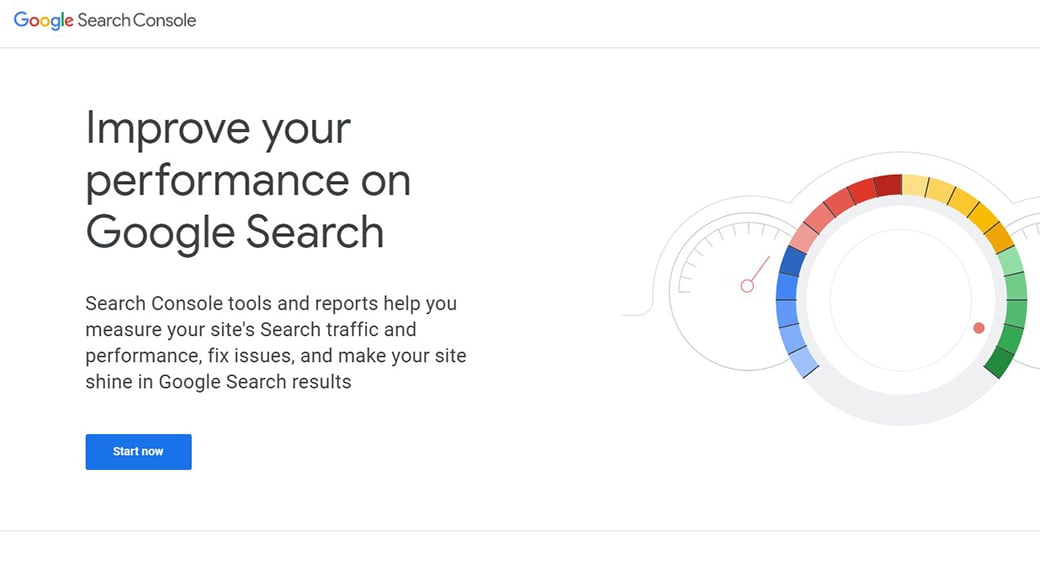
First, you need to understand the key parameters and benchmarks for pagination pages to track the effects of optimization. Once you are aware of the parameters, you can track the effects of pagination on your SEO.
SEO Tools
- Google Search Console: You can check your traffic reports on the search engine console through the filtering of paginated pages to get an idea over the different optimization of pagination on your SEO.
- Organic Traffic: You can track organic traffic through the insights provided by the search engine console to track the canonical effect of your root pages.
- Search Operators: Track the number of paginated pages indexed by Google through search operators and plan your optimization of paginated pages to block further indexing.
- Google Analytics: With Google Analytics, you can always track your SEO rankings and traffic generated through the optimization of pagination. You can track the landing page report with the filtration of paginated pages.
- Log Files: Web server logs record every crawling activity done on your website including a number of pages crawled and types of pages crawled. You can use server log files to track whether paginated pages are crawled or not and if crawled than what is the number of paginated pages crawled?
As you track these KPIs(Key Performance Index) for the SEO pagination, you understand the importance of structural pagination and the importance of attributes to your website.
Helpful Tactics
Practically you can employ these tricks to ease the pagination process:
- Use unique identifiers for each page that you are placing in the series of pagination.
- Allow the use of view more or scroll with the effective break up of content into different pages.
- Optimize your “rel=next/prev” attributes to achieve better SEO.
- Canonical links should be optimized for indexing the pages better.
- Finally, never forget to add your attributes in header tags.
Signing Off SEO Pagination
Whether you are an SEO seeking a way out of pagination or an expert technical SEO, on-page modification and paginations can help you with indexing troubles by the Google bots. Modification of on-page elements can certainly change that.
Many businesses and website owners are looking to transform their app ideas into a reality along with a zeal to provide every possible detail regarding their business. Such huge chunks of content can certainly backfire.
In such cases, SEO pagination URL structure needs optimization and interlinking among the pages. So, if you are ready to paginate, go for it and rank higher!


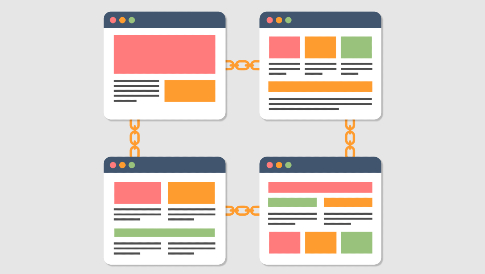
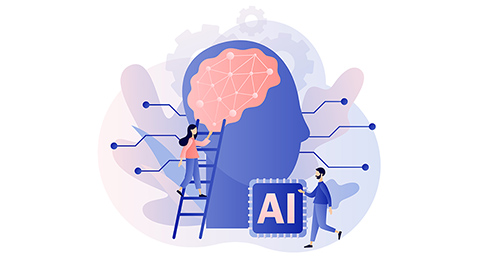
Leave a Reply